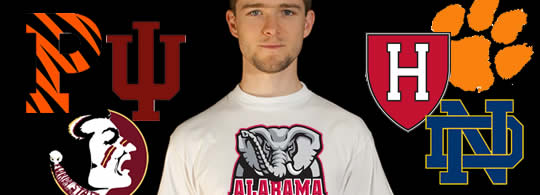College Branding, Personal Branding

Although the concept of personal branding was likely launched by Tom Peters’ excellent 1997 article, The Brand Called You, the idea that others perceive you as an amalgam of personal characteristics, experience, and qualities no doubt goes back millennia. And since education became formalized by the establishment of universities, for many people a key part of their personal brand is the college they attended.
Not all individuals incorporate their education into their personal brand. Perhaps those credentials aren’t relevant, or perhaps they simply don’t support the desired personal brand image in any significant way. But for many, their undergraduate degree is an indelible logo on their personal brand. Even in these difficult economic times, schools like Harvard, Columbia, Notre Dame, Princeton, and others get many times more applications than they can accept, with the most selective rejecting more than nine out of ten.
There are lots of reasons for the immense demand for admission to these schools, but I would suggest that one of the biggest is branding. First, these universities have established their own very strong brands. Much as with a consumer product, high levels of brand recognition and a positive brand image lead to more demand. Indeed, these well-known institutions are commonly referred to as “brand name” schools.
An equally important part of the brand effect is that these high school seniors want to make the school brand part of their personal brand. Earn a degree from Notre Dame, and you are a Domer for life. Graduate from Princeton, and you’ll always be one of the select few. Brands can be regional or specialized, too. Most people wouldn’t know what “Newhouse” signifies, but in broadcasting and journalism it’s a strong brand. In Texas, you can be a Longhorn or an Aggie, and either brand can be prized (or reviled).
The question for colleges and universities who want to attract students is simple: Does your brand add value to the personal brands of your alumni? Every school can’t be Harvard, but that doesn’t mean that it can’t have a meaningful brand at some level. If not national, a strong brand can be regional/local or topic-specific. Some brands are based on academic renown, others on sports, and others on a variety of characteristics.
In an environment of shrinking enrollment in four-year traditional colleges, the biggest challenge will be to those schools who fail to develop any kind of meaningful brand. Is your college’s tagline something like, “Educate. Innovate. Inspire,” or something equally generic? Would someone put that on a car decal or sweatshirt? (Of course, even some good taglines may differentiate the school but not be shirt-worthy.)
Branding is a lot more than making sure everyone uses the right Pantone color and current logo. The goal must be to create a brand that becomes a desirable addition to the personal brand of every student and alumnus.
College branding homework assignment: can you suggest some schools that may not be national brands (i.e., either big-time sports schools or those at the top of the USNews academic rankings) but have still developed brands prized by students and alumni?

It seems that using a school as part of a personal brand missing the point — it is NOT personal. Rather it is a commodity shared by everyone that went to that school. Personal branding must be unique to the individual and what they bring to the party.
Being a college student, personal branding when it comes to college gear is everywhere around campus. Incoming freshman can’t wait to get their school colors on. Nothing is better than a comfy pair of sweatpants that yell UMASS along the leg. This blog nicely shows that everyone takes pride in wearing their school logo.